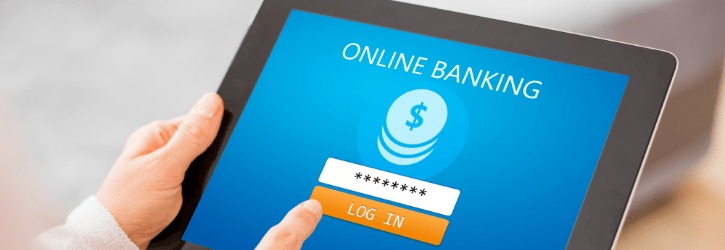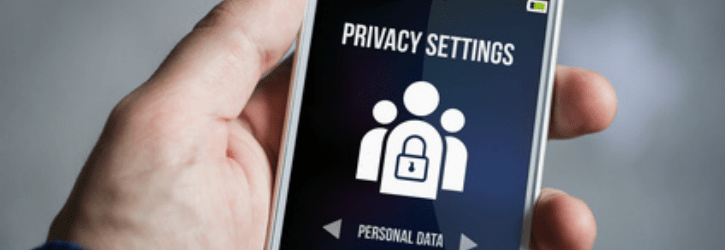
Welcome To The Data Leak Lawyers Blog
We focus on the latest news surrounding data breaches, leaks and hacks plus daily internet security articles.

We focus on the latest news surrounding data breaches, leaks and hacks plus daily internet security articles.

There can be huge risks when it comes to online streaming data breach incidents, with research showing that they’re one of the biggest targets for cybercriminals.
And it makes sense as to why they’re a huge target as well. Not only could they gain financial information from your account, but they could also use your account for pirating as well.
Online streaming is growing and growing in popularity, so there’s no way that it will be left behind when it comes to targets for cybercriminals and hackers. It can be so easy for accounts to be breached, so you need to make sure to do all you can to protect yourself. And know your rights when it’s not your fault!

Data suggests that there’s been a rise of funds transfer fraud (FTF) in the UK, and with real-time and faster payment processes commonplace these days, we’re not surprised.
Incidents of funds transfer fraud can be linked with data breaches as well. Whether it’s a bank or financial institution that’s hacked – the Tesco data breach being one example – or a scam that’s linked to a data breach, we have to ask the question: what more could have been done, and who’s responsible?
It can only take a little bit of information in the wrong hands to do some serious damage. People have fallen victim to scams that are directly related to big data breach incidents. A rise in FTF is a concern.

We may be able to offer you a No Win, No Fee arrangement for a banking data breach compensation claim.
The risks of falling victim to a banking data breach are obvious. With so much ease of access to our finances, it can be simple for hackers and criminals to exploit the ease of access to steal money directly from accounts.
Although you have a duty to ensure that you’re vigilant to avoid giving information to hackers, there are ways criminal can get hold of information and use it against you. If your information has been leaked, breached or hacked, you may be eligible to make a claim for data breach compensation if a bank is responsible.

There are rising financial services data breach incidents, according to the number of reports that have been made to the Financial Conduct Authority (FCA).
In 2018, it’s understood that the number of data breaches that had been reported to the FCA had increased by a monumental 480%.
With May 2018 seeing the introduction of the new GDPR rules, punishments that can be issued for data incidents can amount to millions. On top of that, victims can be entitled to make a claim for compensation. Financial services data breach compensation amounts can be high, depending on the nature and severity of the incident.

It can be a huge problem if universities are hacked. Reports suggest that more needs to be done when it comes to educational cyber defence, as recent reports have confirmed that white hat hackers managed to easily break into systems.
According to media reports, white hat hackers managed to gain access to “high value” data from universities in hours. In case you’re not sure, “white hat hackers” are essentially hackers who break into systems for non-malicious proposes. They often inform the organisations they have hacked so they can improve their security. They’re often security specialists themselves.
We’ve seen the damage that university data breaches can cause. We continue to run an action for victims of the University of Greenwich Data Leak. In that case, a wealth of personal and sensitive data was exposed.

The dangers of the Quora data breach cannot be understated, especially when the incident reportedly affected up to 100m users!
Just yesterday we wrote about the issue of reusing passwords and user credentials across multiple sites. Doing so can put you at far greater risks than you may even realise. One of the key things it means is that your credentials breached in an attack could be used to break into other platforms you use. Facebook is a prime example with billions of users and a feature that lets you log into other platforms using your Facebook credentials.
On that basis, the dangers of an incident like this Quora one simply cannot be understated.

Thousands of people have contacted us for help with data breach claims. Victims can be entitled to make a claim for compensation. The risks of reusing passwords is one of the first things people may need to consider.
The advice is to never reuse the same passwords and user credentials across different platforms. Despite this, people still do it. It means that being the victim of one simple breach could lead to several accounts being accessed. In fact, it could even mean those credentials are used to hack into a business you are employed with.
There’s a great deal that many people may not consider when it comes to reusing passwords and usernames. The mindset needs to change!

The typical answer as to the popular question “is your phone recording you?” is often “no”, according to many. However, you may not be aware that some things can be recorded, and you may not be aware of it.
According to a recent investigation by TechCrunch and The App Analyst, some popular apps may be recording user data without proper – or more explicit – permission or understanding. The investigation reportedly looked at a range of apps and found ways in which the companies or the developers could record and store data they may not have permission for.
That’s worrying; especially in the era of continual breaches linked to apps, and ongoing concerns as to how much the likes of Siri or Alexa are taking in when they’re waiting for our commands…

News of an OkCupid data breach has been denied by the company, although a “bug” has reportedly been found by a security firm anyway.
Some users reportedly complained of their accounts being hacked and taken over. As a result of a lack of additional security, like two-factor authentication – a lack of security apparently common in the dating site industry – some users were successfully targeted by criminals.
However, OkCupid denies that a security breach has taken place. That being said, a “bug” was reportedly identified by security researchers and has apparently been fixed.

Victims of last year’s TV licensing data breach need to take care to avoid falling victim to phishing scams that are doing the rounds at the moment.
Victims of the TalkTalk data breach – one of the over 20 data breach actions we’re representing people in – were contacted after the breach. It appears that scammers had got hold of information that had been exposed in the breach. Victims of the TV licensing data breach should be wary of being contacted in the same way.
We know that phishing scams using the cover of TV licensing are doing the rounds. One victim lost £10,000.00 to scammers after they managed to convince him they were the real thing.
EasyJet admits data of nine million hacked
British Airways data breach: How to claim up to £6,000 compensation
Are you owed £5,000 for the Virgin Media data breach?
Virgin Media faces £4.5 BILLION in compensation payouts
BA customers given final deadline to claim compensation for data breach
Shoppers slam Morrisons after loyalty points stolen
Half a million customers can sue BA over huge data breach
Lawyers accuse BA of 'swerving responsibility' for data breach
The biggest data breaches of 2020
Fill out our quick call back form below and we'll contact you when you're ready to talk to us.